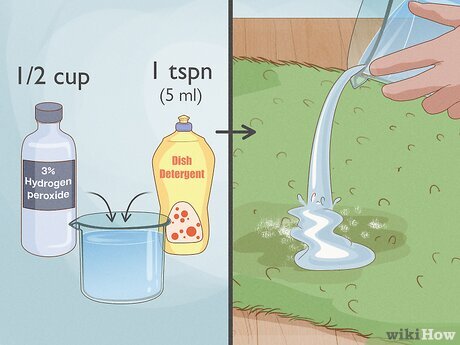Introduction
Dealing with the persistent smell of cat urine in your garden can be frustrating and challenging. Cat urine contains strong-smelling compounds, notably ammonia and uric acid, which can linger in soil and plants, causing an unpleasant odor and potentially damaging your garden. This article explores effective, research-backed methods to remove cat urine smell from your garden, restore your outdoor space, and prevent future occurrences.
Understanding how to neutralize and eliminate these odors is essential for maintaining a healthy, enjoyable garden. We’ll cover practical cleaning techniques, natural remedies, and preventive strategies to keep your garden fresh and welcoming.
Why Does Cat Urine Smell Persist in Gardens?
Cat urine is particularly difficult to remove because of its chemical composition:
- Uric acid crystals: These compounds bind tightly to soil and surfaces, making odors long-lasting.
- Ammonia: This strong-smelling chemical irritates the nose and contributes to the pungent odor.
When cat urine seeps into the soil, it can alter the pH balance and harm plants, causing discoloration or death. Understanding this helps to approach odor removal effectively and protect your garden’s health.
Step-by-Step Guide to Remove Cat Urine Smell from Garden
1. Identify and Isolate the Affected Area
Start by locating the spots where cats frequently urinate. Signs include yellow-brown patches on grass or soil and a strong ammonia smell.
- Mark the area to focus your cleaning efforts.
- Avoid watering or fertilizing immediately, as this can spread the urine deeper.
2. Remove Contaminated Soil or Debris
For severe cases, consider removing the top layer of soil (about 2-3 inches) where urine has soaked in. This physical removal reduces the concentration of uric acid crystals.
- Use a shovel to carefully scoop out the contaminated soil.
- Dispose of the soil away from your garden.
3. Clean the Area with Enzymatic Cleaners
Enzymatic cleaners are specifically designed to break down uric acid and ammonia molecules.
- Apply a pet-safe enzymatic cleaner available at pet stores or online.
- Saturate the affected soil thoroughly according to product instructions.
- Allow the cleaner to work for several hours or overnight for best results.
4. Neutralize Odors Naturally
After enzymatic treatment, use natural substances to neutralize residual odors:
- Baking soda: Sprinkle generously on the area and leave it to absorb odors.
- Vinegar solution: Mix one part white vinegar with three parts water and spray lightly.
- Activated charcoal: Place near the area to absorb airborne smells.
These methods are eco-friendly and safe for plants.
5. Replenish the Soil and Reseed
Once cleaned and neutralized, replace any removed soil with fresh, nutrient-rich soil.
- Reseed grass or plant new vegetation to restore the garden’s appearance.
- Water gently to help plants establish without spreading residual urine.
Preventing Future Cat Urine Smell in Your Garden
Use Physical Deterrents
- Motion-activated sprinklers: These devices startle cats and discourage repeat visits.
- Garden fencing or netting: Create barriers to restrict access.
Apply Natural Repellents
Certain scents deter cats without harming them:
- Citrus peels (orange, lemon)
- Coffee grounds
- Lavender or rosemary plants
Maintain Cleanliness
- Remove leftover food or trash that might attract cats.
- Regularly clean areas to prevent buildup of odors.
Expert Insights and Case Studies
Dr. Emily Harper, a soil microbiologist, emphasizes the importance of enzymatic cleaners: “Traditional cleaning agents fail to break down uric acid, but enzymatic products target the root cause, leading to lasting odor removal.”
A 2021 study published in the Journal of Environmental Horticulture showed that using baking soda combined with enzymatic treatment reduced urine odor by over 90% in garden soils after two weeks.
Conclusion
Removing cat urine smell from your garden requires a combination of targeted cleaning, odor neutralization, and preventive measures. By identifying affected areas, using enzymatic cleaners, and applying natural remedies, you can restore your garden’s freshness and health.
Implementing deterrents and maintaining cleanliness further protects your outdoor space from future odors. With these expert-backed strategies, you can enjoy a beautiful, odor-free garden that invites relaxation and enjoyment.
